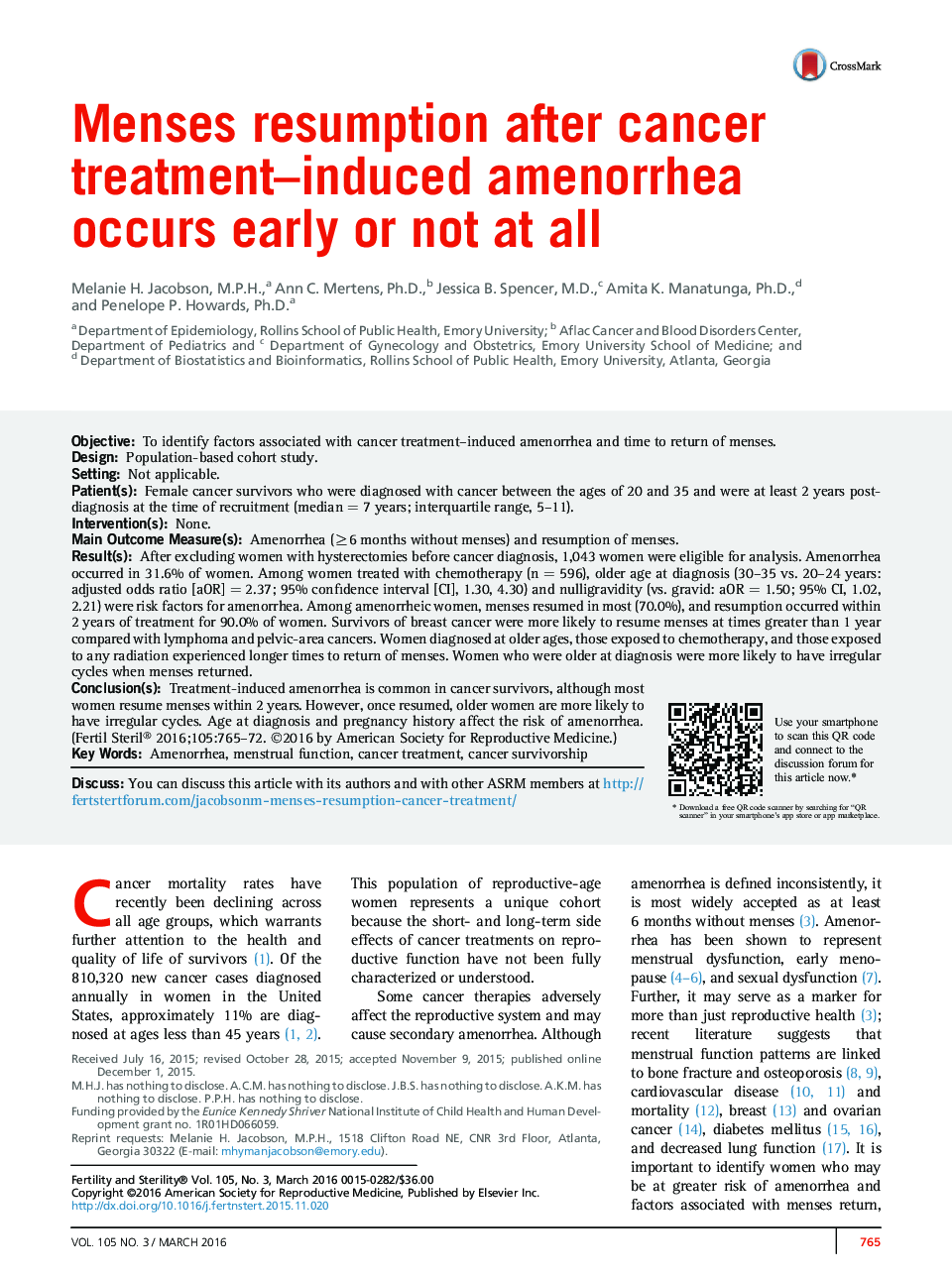| کد مقاله | کد نشریه | سال انتشار | مقاله انگلیسی | نسخه تمام متن |
|---|---|---|---|---|
| 6179708 | 1253416 | 2016 | 12 صفحه PDF | دانلود رایگان |
ObjectiveTo identify factors associated with cancer treatment-induced amenorrhea and time to return of menses.DesignPopulation-based cohort study.SettingNot applicable.Patient(s)Female cancer survivors who were diagnosed with cancer between the ages of 20 and 35 and were at least 2 years postdiagnosis at the time of recruitment (median = 7 years; interquartile range, 5-11).Intervention(s)None.Main Outcome Measure(s)Amenorrhea (â¥6 months without menses) and resumption of menses.Result(s)After excluding women with hysterectomies before cancer diagnosis, 1,043 women were eligible for analysis. Amenorrhea occurred in 31.6% of women. Among women treated with chemotherapy (n = 596), older age at diagnosis (30-35 vs. 20-24 years: adjusted odds ratio [aOR] = 2.37; 95% confidence interval [CI], 1.30, 4.30) and nulligravidity (vs. gravid: aOR = 1.50; 95% CI, 1.02, 2.21) were risk factors for amenorrhea. Among amenorrheic women, menses resumed in most (70.0%), and resumption occurred within 2 years of treatment for 90.0% of women. Survivors of breast cancer were more likely to resume menses at times greater than 1 year compared with lymphoma and pelvic-area cancers. Women diagnosed at older ages, those exposed to chemotherapy, and those exposed to any radiation experienced longer times to return of menses. Women who were older at diagnosis were more likely to have irregular cycles when menses returned.Conclusion(s)Treatment-induced amenorrhea is common in cancer survivors, although most women resume menses within 2 years. However, once resumed, older women are more likely to have irregular cycles. Age at diagnosis and pregnancy history affect the risk of amenorrhea.
Journal: Fertility and Sterility - Volume 105, Issue 3, March 2016, Pages 765-772.e4
